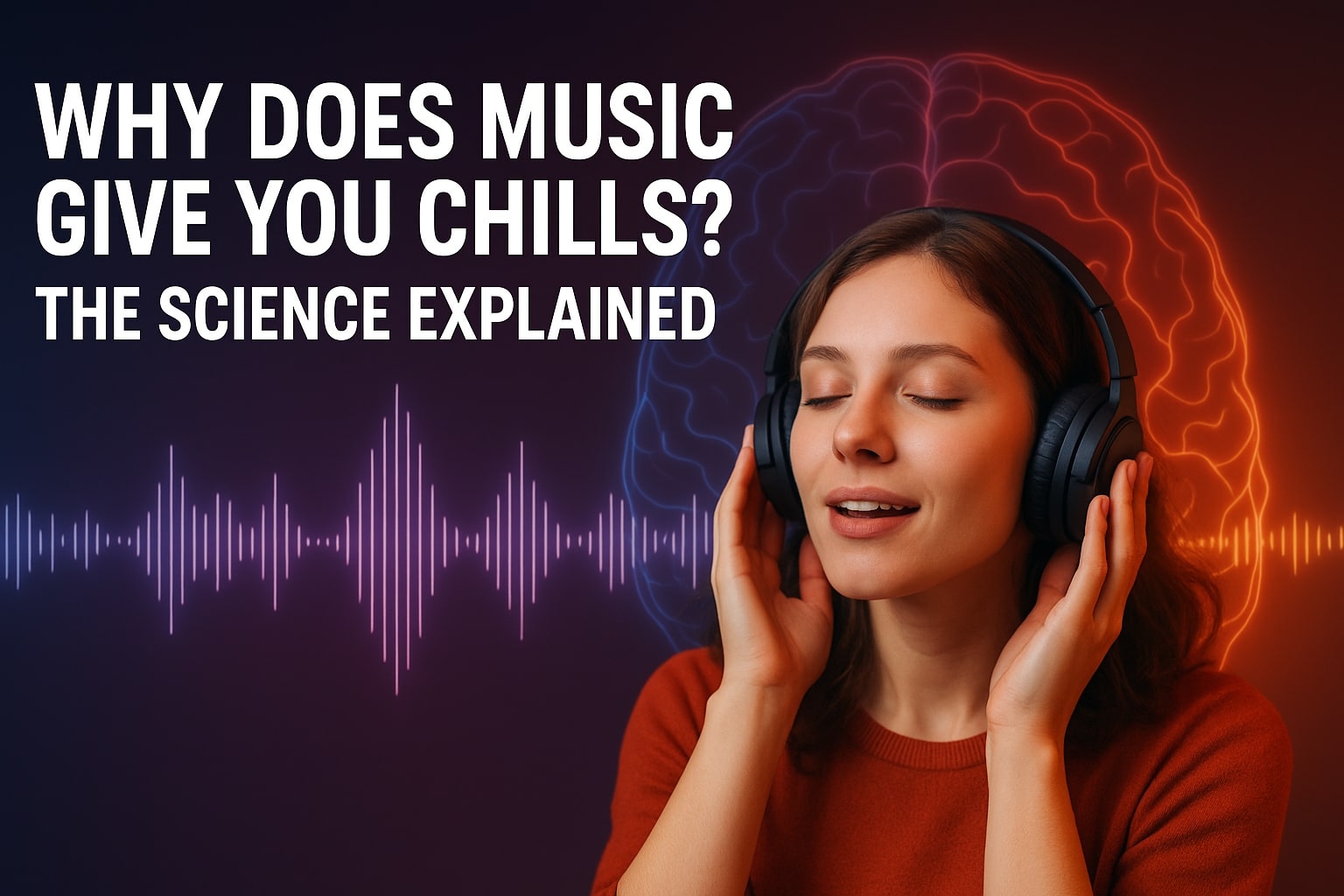What Is Frisson and Why Does It Happen?
Frisson, the technical term for why does music give chills, is a physical and emotional response triggered by unexpected elements in music such as sudden key changes, crescendos, or harmonic progressions. When your brain encounters these musical surprises, it releases dopamine in the same reward pathways activated by food, sex, and other pleasurable experiences.
The phenomenon occurs when your brain's prediction system is pleasantly violated - you anticipate one musical direction, but the composer takes you somewhere unexpected yet satisfying. This creates a cascade of neurochemical reactions involving the autonomic nervous system, which controls involuntary responses like goosebumps, increased heart rate, and even tears. Only about 55-86% of people experience frisson regularly, suggesting genetic and individual differences in musical sensitivity.
📺 Featured Video

The Science of Why Music Can Give You Chills 🎶
by Visual TV
What Brain Regions Are Involved in Musical Chills?
Research shows that understanding why does music give chills involves multiple brain regions working together in complex ways. The auditory cortex processes the musical information, while the limbic system - including the amygdala and hippocampus - handles emotional responses and memory associations. The reward system, particularly the nucleus accumbens and ventral tegmental area, releases dopamine during peak musical moments.
Neuroimaging studies reveal increased activity in the anterior cingulate cortex and orbitofrontal cortex during frisson episodes. These areas are crucial for emotional processing and reward anticipation. The cerebellum, traditionally associated with motor control, also shows heightened activity, suggesting that musical chills involve both emotional and physical preparation for movement - possibly an evolutionary remnant from when music served social bonding functions.
What Types of Music Are Most Likely to Cause Chills?
Certain musical elements consistently trigger frisson across different individuals and cultures when exploring why does music give chills. Sudden dynamic changes, unexpected harmonies, entrance of a choir or soloist, and emotional peaks in familiar songs are common triggers. Classical music, film soundtracks, and emotionally charged vocals tend to produce chills more frequently than other genres.
Personal associations play a crucial role - music connected to significant life events, memories, or emotional states is more likely to produce frisson. Cultural factors also influence susceptibility, with people showing stronger responses to music from their own cultural background. Interestingly, the more you analyze music technically, the less likely you are to experience chills, suggesting that emotional openness rather than musical knowledge enhances the frisson response.
